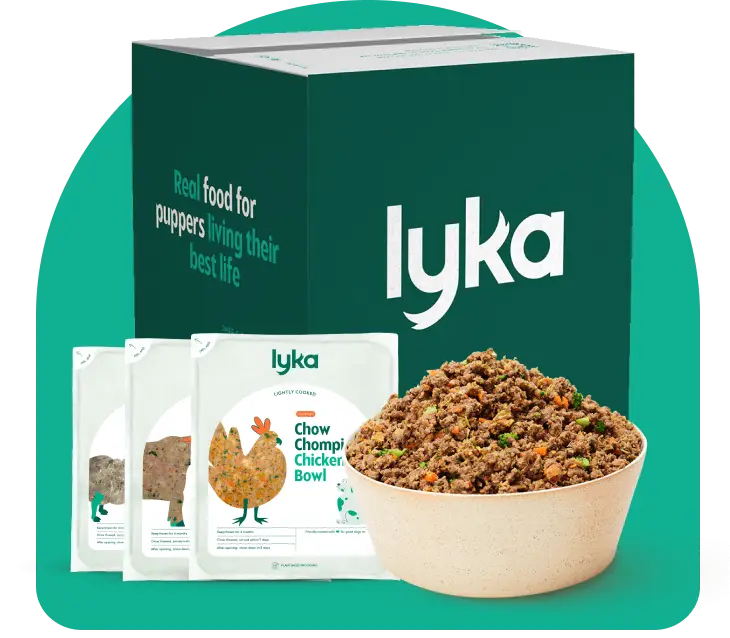Peanut Butter: the nutritious spread we’re nutty about

By Olivia Blazevic

Peanut butter — the lip-smacking, sticky spread that most dogs go nuts for!
Whether it’s smeared on a lick mat or a sneaky cover to hide medication, it’s a great treat to have at home. Chock full of nutrients and healthy fats, we use peanut butter as one of the base ingredients in our Pupper Supps supplement range.
Let’s take a closer look at the health benefits of PB and what to consider before buying your pup’s next jar.
What are the nutritional benefits of peanut butter?
Did you know that a peanut isn’t a nut? It’s a legume! They’re actually in the same family as beans and peas and have many nutritional benefits for your dog.
Peanut butter sometimes gets a bad rap when it comes to discussing nutrition. It’s probably less to do with its nutritional value and more to do with how moreish it is — for pups and pupper parents alike!
Despite its many health benefits, peanut butter is energy-dense and high in fat, which means it should be an occasional treat for your pupper. One tablespoon of peanut butter contains just under 100 calories, which may not seem a lot, but it’s always relative to your dog’s optimal weight.
Let’s use Lucy, a 10kg Beagle, as our example. When it comes to calorie intake the general rule of thumb is that dogs require 60 calories for every 1kg of their body weight. So, Lucy should be fed 600 calories per day.
Dog treats should not exceed 10% of their total calories for the day, which means a maximum of 60 calories for Lucy. So, one tablespoon of peanut butter at 100 calories may be going overboard.
Why peanut butter is our jam
High-fibre content. Peanut butter contains soluble and insoluble dietary fibres that help to keep your pup’s bowel movements regular.
Antioxidant-rich. Peanut skins are a great source of fibre and have antioxidant properties too, especially when roasted, so look for a PB that uses skin-on nuts for additional health benefits.
Protein-packed. Approximately 25% of peanut butter is protein, which is high for a humble legume. Your pup’s body uses protein as a building block to build and repair tissue and many other bodily functions.
Vitamin boost. Peanuts and peanut butter are naturally rich in vitamins.
Vitamin E supports your pup’s skin, sight and cellular health.
Vitamin B3 (niacin) converts their food into energy.
Vitamin B5 helps red blood cell formation and hormone regulation.
Vitamin B6 encourages healthy immune and nervous systems.
Healthy fats. It’s true, peanuts are high in fat and should be eaten in moderation. But, many of the fats are healthy fats:
Oleic acid is an omega-9 fatty acid that makes up nearly half the fat in peanuts. It’s used to improve heart function and reduce inflammation.
Linoleic acid is an essential omega-6 fatty acid that cannot be produced naturally by your dog’s body, so it must be part of their healthy diet. Linoleic acid is known to reduce cholesterol and has been shown to improve insulin sensitivity.
Essential minerals. Peanut butter contains several essential minerals that your pup needs for optimal health and wellbeing:
Manganese supports bone formation, metabolic processes and your dog’s immune response.
Copper helps to keep your dog’s nervous system and immune system healthy. It’s also used in the formation of red blood cells.
Magnesium is used in energy production and supports muscle and nerve function.
Which kind of peanut butter is the healthiest for my dog?
Peanut butter lovers are usually divided into two distinct camps: smooth vs crunchy. Beyond your personal preference for texture, it’s more important to check the ingredients list on the back of the jar for your pup.
Avoid any peanut butter that contains xylitol. This artificial sweetener is toxic to dogs and can be fatal.
The best peanut butter contains only one ingredient: peanuts.
Sounds obvious, but many brands add sugar, salt and even extra oil to their peanut butter. Too much of these ingredients can lead to obesity or pancreatitis, so avoid PB containing these additives.
How do I feed peanut butter to my dog?
PB is very versatile and it’s the perfect consistency to smear into treats like our lamb straws and onto lick mats for an enrichment activity. You can also add it to recipes for homemade treats and it can be frozen for a longer-lasting experience.
Moderation is key when it comes to feeding your dog this spread.
Medium-large dogs: 1-2 teaspoons per day maximum
Small dogs: ½-1 teaspoon per day
How does Lyka use peanut butter?
Our Pupper Supps contain a healthy dollop of dog-friendly, 100% Australian-made peanut butter as a base ingredient. Each bite-sized supplement is a boost of wholefood nutrition for optimal health and targeted care for common issues.
This article was reviewed by Lyka’s animal care experts.
Reviewed by:
Louise Hawkins, Qualified Veterinary Nurse and Research and Development Associate







